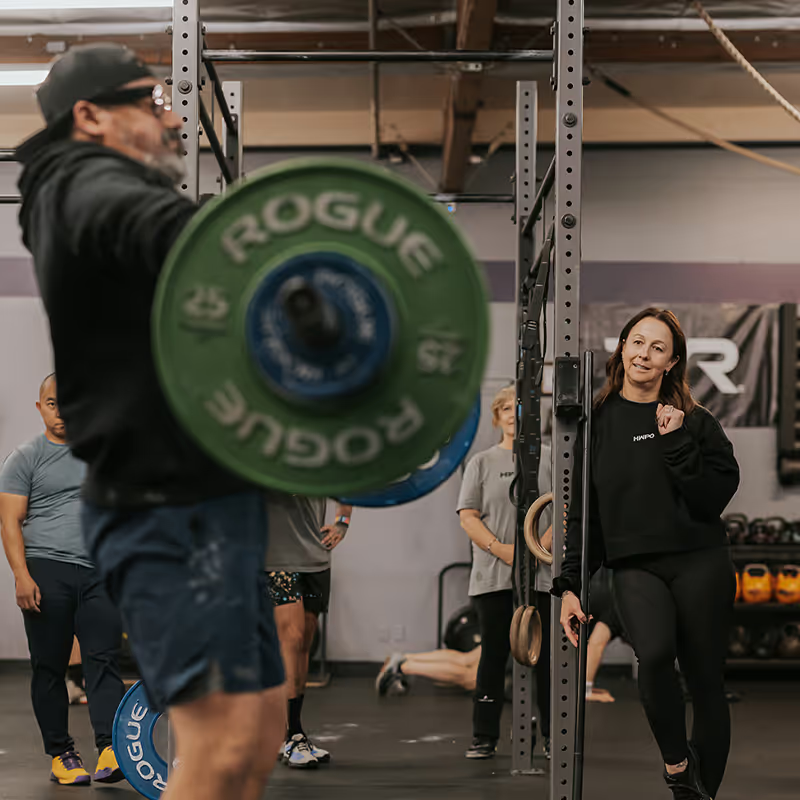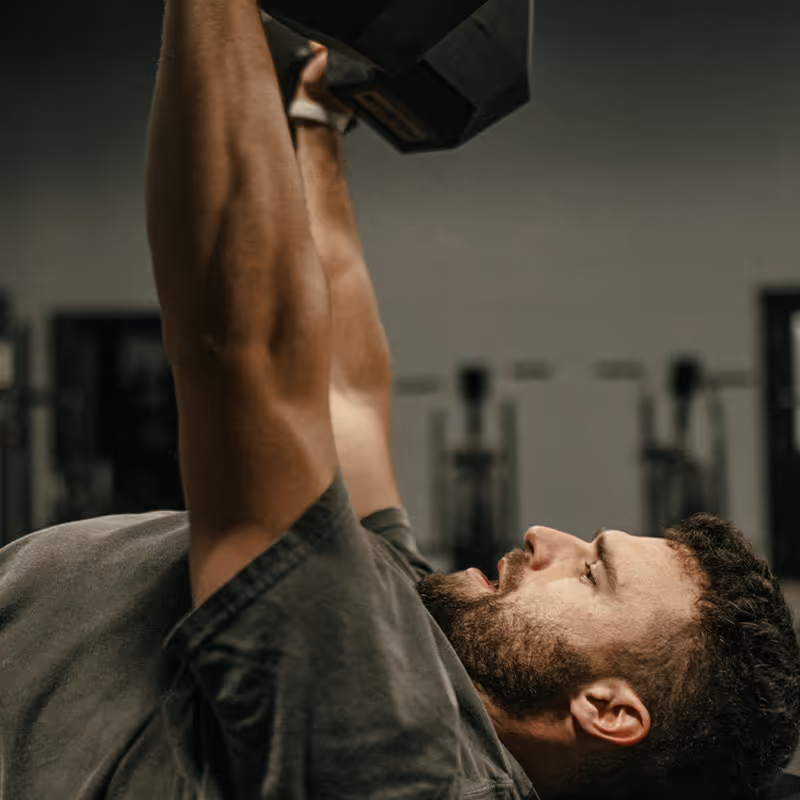What Does A Personal Record Mean And Why Is It Important?
If you’ve spent time in Olympic Weightlifting, CrossFit, running, or just about any fitness space, you’ve heard people talk about their “PRs” or “PBs.” A personal record is more than just a number — it’s a milestone that represents progress, effort, and consistency. In this blog, we’ll look at what PRs are, why they matter, and how they can shape your training journey.
Oct 5, 2025
If you're passionate about Olympic Weightlifting, CrossFit®, sports, fitness, or any form of physical activity, you've probably heard the term Personal Record or PR, sometimes called Personal Best, or PB. But what exactly does it mean, and why does it hold such significance for athletes and coaches? Let's look at the meaning of a personal record and explore why it's an important milestone.
What does a personal record (PR) mean?
A Personal Record (PR) is the best performance an individual has ever achieved in a specific lift, activity, event, or workout. It represents the highest level of personal achievement in that particular discipline, whether it's lifting weights, running, jumping, a metcon or conditioning workout, swimming, or any other physical endeavor.
For example:
- Running a 5K in 20 minutes – your personal record/best.
- Clean & Jerking 150 kilos – your personal record/best
- Completing a marathon in under four hours – your personal record/best time
PRs are unique to each person and vary based on experience, training, mental strength, effort, or the level a person may be competing at. They serve as measurable benchmarks to track progress over time.
Why is a personal record (PR) important?
A PR is more than just a personal milestone — it’s a marker of progress that keeps training purposeful. Beyond numbers on the bar or seconds on the clock, personal records provide motivation, track development, and guide how athletes and coaches shape future training.
Motivation and goal setting
Achieving a PR is incredibly motivating and rewarding. It is a way to measure that all of your HARD WORK and training is paying off. It provides a goal to strive for and encourages continued effort and improvement—something to SHOW UP every day and work towards—to lift even 1 kilo heavier, to run even 02 seconds faster, to jump even 5 inches higher. Setting new PRs helps keep your training intentional and purposeful.
Tracking progress
PRs serve as concrete evidence of progress. These benchmarks allow athletes and coaches to see how far the individual has come, whether it's improving endurance, strength, or technique. They also serve as data for moving towards goals, and allow for proper short-term and long-term planning.
Training prescription and progression
A PR is also vital for coaches and athletes when prescribing training. Many training programs use percentages of a recent PR to structure progression-based training. For example, when it's time to lift at 80%, the athlete knows precisely what weight corresponds to 80% of their best lift. This standardized approach ensures training intensity is accurate, safe, and tailored to the individual's capabilities. It is a way to track intensity during different training cycles and leading into competition without the athlete getting over-trained, injured or hitting a plateau.
Building confidence
Breaking your own records boosts confidence and self-belief. Each new PR reinforces that your HARD WORK is paying off, fostering a positive mindset toward future challenges. Chasing PRs keeps you motivated, working hard, and inspired to SHOW UP during hard training times.
Evolution beyond numbers
PRs are not just about increasing the number or weight lifted, or knocking seconds off your best times. They can also reflect improvements in various other areas:
- Technique: Are you moving more efficiently or smoothly?
- Consistency: Can you perform exercises with fewer missed reps or errors?
- Confidence: During lifts, runs, or overall training, are you more confident?
- Speed & Explosiveness: Do you feel faster, more powerful, and more explosive during movements?
Feelings of well-being: Are you feeling stronger and more energetic overall? Are you recovering better? Are you mentally feeling good about training? Are you doing a better job taking care of your mental health, physical health, and/or self-care?
These improvements often go hand-in-hand with a physical PR, but it is important to measure progress and improvements across all aspects--training, mindset, and performance.
My final thoughts
A personal record is more than just a number—it reflects your growth, dedication, and potential. It results from your resiliency, tenacity, and will to SHOW UP each day and WORK HARD. Whether you're an athlete, fitness enthusiast, or someone aiming to improve in any activity, tracking and striving for new PRs can inspire continuous progress and self-improvement. It helps you best prepare in precise training planning through percentage-based progression, boosts confidence, and signifies improvements across multiple areas—technique, consistency, strength, and mindset.
Whether you are an athlete training for a specific competition or goals, or someone who just likes to train or work out for fun and your mental and physical health, enjoy the journey, celebrate your milestones, and keep pushing your boundaries—recognize your best performances and use them to keep SHOWING UP and MAKING YOURSELF PROUD.



Hit your next PR with HWPO LIFT
HWPO LIFT is built for athletes who are chasing progress. Follow structured programming, train with purpose, and set new PRs that last.





